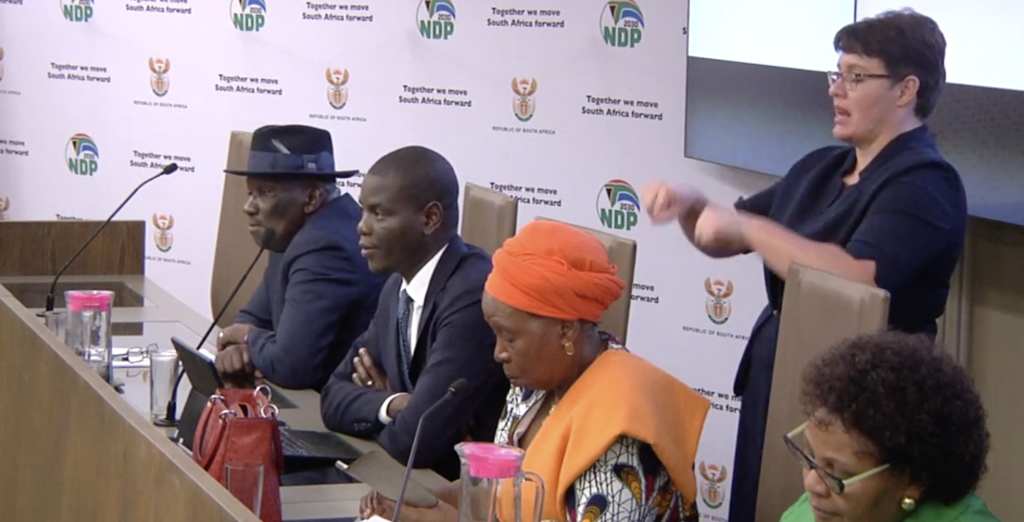South Africa’s ministers have provided clarity on the lockdown procedures which are being implemented from midnight, Thursday March 26.
Prohibition of movement
Minister of Police Bheki Cele outlined exactly what is prohibited with regards to movement during the lockdown.
Citizens won’t be allowed to leave their homes except for necessary movement, including shopping for groceries, medicine or medical care, attending funerals and collecting social grants.
– Any place or premise normally open to public where religious, culture, sporting, entertainment, recreational or exhibition events happen are prohibited.
– Locations where goods, other than essential goods, are acquired, disposed of or sold are closed.
– Parks, beaches, swimming pools, markets, nightclubs, casinos cannot be open. Hotels, guesthouses, lodges, private and public game reserves are closed with the exception of their current guests.
– On-consumption liquor premises, such as bars, shebeens, taverns are required to be closed.
– Off-consumption liquor premises, like liquor stores and supermarket will not be allowed to sell alcohol.
– Shopping malls, excluding grocery stores and pharmacies are closed.
– Restaurants and food delivery services are closed.
Citizens cannot leave their homes to walk their dogs, go for a jog or walk.
“You can walk your dog around your house and it can’t go beyond that,” said Cele.
Restricted opening hours for grocery stores are being discussed and citizens are asked to go to their closest store, which includes spaza shops.
Those found breaking the lockdown are liable to 6 months imprisonment or a fine or both.
“For 21 days, please stay sober,” said Cele.
Cele also explained that there would be an increase in units available to deal with women and child abuse. He advised those who experience abuse during the lockdown to call 0800428428.
All other reports should continue through the standard police line, 1011.
Deployment of the South African Defence Force
The South African Defence Force will be deployed to assist the South African Police with the lockdown measures.
They will be supporting roadblocks and undertaking foot patrols across the country. They will also ensure all ports remain closed as per lockdown instructions.
SA military health services will also continue to work with all health authorities to provide essential health to the public.
“We reiterate to all South Africans to stay at home for the duration of the lockdown,” said Minister of Defence Nosiviwe Noluthando Mapisa-Nqakula, “Lockdown is not meant to punish citizens.”
She explained that the current movement of troops is not yet an official deployment but rather preparations.
Transportation during the lockdown
Minister of Transport Fikile Mbalula clarified exactly how essential workers would be transported across the country during this time.
Mini-bus taxis, metered taxis and e-hailing services will be allowed to continue to transport essential workers and those leaving for the specified purposes under stricter rules.
They will only be allowed to transport between 5am – 9am and 4pm-8pm every day. During this time people can use transport to the shop and get medical care.
All transport needs to be sanitised after each trip and taxi ranks need to be sanitised regularly.
The number of passengers in metered taxis and e-hailing services are lowered. A car allowed to take four people can now only take one. A vehicle able to seat 8 can only take three.
All trains, both commuter and private are shutdown.
All long-distance passenger buses and cross-border passenger transport is prohibited. Only cargo can be transported across the country and into neighbouring countries.
All long distance passenger services both public and private will stop during shutdown.
Limited bus services will continue to run for essential workers.
The Department of Transport has committed to keep a skeleton staff to deal with transport incidences, including accidents. Those whose drivers licenses expire during lockdown will get given a 14 day grace period after the lockdown ends.
Price gouging report hotline
Price fixing and gouging of essential products has already been identified. The Minister reported 30 investigations of stores who have been reported as inflating prices.
Stores hiking prices have been asked to supply reasons why they are doing so. Most price hikes were noted on hand sanitiser and face masks but also basic food items.
Three of these investigations were in Cape Town for overpriced hygiene goods.
Those wanting to report suspected price hikes can call 084 743 0000.
Social grant distribution will continue
Social grant recipients will still be allowed to collect their grants. Transport will be provided for those to go to pay points.
A manager will be placed at a pay point to manage lines and assist with hygiene procedure adherence. Grant recipients were asked to comply with regulations and behave accordingly at pay points.
Those who require assistance may call the Sassa call centre 0800601011.
Picture: Twitter

